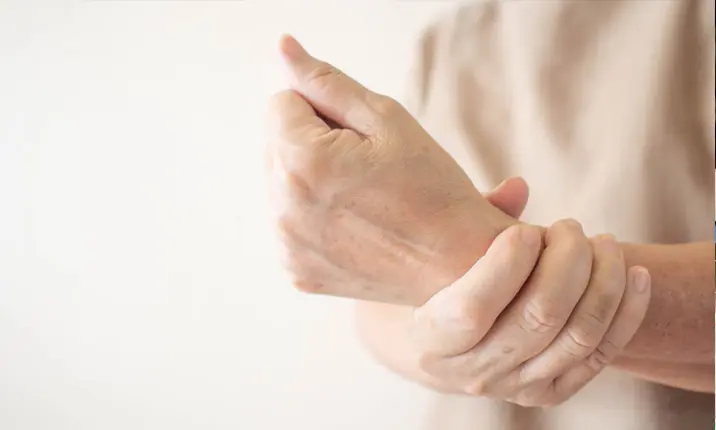Do you ever find your hands tingling or going numb during daily tasks or when you wake up? While it might seem minor, these sensations can be linked to a variety of causes, from temporary inconveniences to serious health conditions. Often described as “pins and needles,” this feeling can range from being a harmless occurrence to an indicator of something more significant.
Let’s dive into the reasons why you might experience numbness or tingling in your hands and the actions you can take to address them. Understanding the possible causes can help you determine when it’s time to take the next step toward treatment or prevention.
Understanding Hand Numbness and Tingling Sensations

Numbness and tingling occur when nerve signals traveling to the brain are disrupted. This disruption may result from pressure, injury, or damage to the nerves. The symptoms can vary in severity, from fleeting and minor discomfort to persistent sensations that interfere with daily life.
Sometimes, the root cause may be as simple as sitting in an awkward position or sleeping wrong. However, ongoing or severe numbness can point to underlying conditions that require medical attention. Recognizing these causes is key to taking care of your health.
Poor Circulation and Restricted Blood Flow
One of the most common reasons for numbness is poor circulation. If blood flow to your hands is restricted, it can create a tingling or numb sensation. This is often caused by temporary factors like leaning on your arm for too long or sleeping in an uncomfortable position.
In more serious cases, poor circulation may stem from health conditions such as peripheral artery disease (PAD) or blood clots. These conditions can disrupt blood flow and lead to symptoms like discoloration, swelling, or pain alongside the numbness.
To address this, move your hands or arms to encourage better circulation. If the problem persists or occurs frequently, consulting a doctor is essential.
Carpal Tunnel Syndrome and Repetitive Strain
Carpal tunnel syndrome is a common issue caused by compression of the median nerve in the wrist. This can result from repetitive hand motions like typing, using a computer mouse, or even specific hobbies such as knitting.
The condition is characterized by tingling, numbness, or weakness in the thumb, index, and middle fingers. Left untreated, carpal tunnel syndrome can worsen and potentially lead to permanent nerve damage.
To reduce symptoms, consider taking breaks from repetitive activities, using ergonomic tools, and performing wrist stretches. If these strategies don’t help, it’s important to seek professional advice. Treatment options might include splints, physical therapy, or surgery in more severe cases.
Diabetes and Nerve Damage
Diabetes is a leading cause of peripheral neuropathy, a condition that damages nerves due to prolonged high blood sugar levels. Numbness or tingling in the hands and feet is often an early sign of this condition.

Over time, diabetes-related nerve damage can impact your ability to sense pain or temperature, increasing the risk of injuries. Managing blood sugar levels is a critical step in preventing or slowing the progression of this condition.
If you have diabetes and notice persistent tingling, consult your doctor to discuss possible treatment options and adjustments to your care plan.
Pinched Nerves and Radiating Pain
A pinched nerve occurs when surrounding tissues, such as bones, muscles, or cartilage, exert pressure on a nerve. This is common in the neck or shoulder area and can result in numbness or tingling that travels down your arm to your hand.
Conditions like herniated discs, arthritis, or repetitive stress injuries often contribute to pinched nerves. The symptoms may be mild initially but can escalate if left unaddressed.
Resting and avoiding aggravating activities are good first steps. Physical therapy may also help, and in some cases, medical intervention such as anti-inflammatory medication or surgery could be required.
Vitamin Deficiencies and Their Impact on Nerve Health
Your body relies on specific nutrients to maintain healthy nerve function. A deficiency in vitamins, particularly B12, can lead to symptoms like numbness or tingling. Vitamin B12 plays a key role in nerve health, and its absence can cause conditions like peripheral neuropathy.
Low levels of vitamin D or magnesium can also contribute to similar symptoms. Dietary adjustments or supplements can often resolve these issues, but it’s important to confirm a deficiency through medical testing before starting any treatment.
Incorporating foods like eggs, fish, and dairy into your diet can help maintain healthy vitamin levels. If necessary, consult a healthcare provider for advice on supplementation.
Raynaud’s Syndrome and Sensitivity to Cold

Raynaud’s syndrome is a condition where blood vessels in the fingers and toes constrict during exposure to cold or stress. This can result in numbness, tingling, and noticeable discoloration of the fingers.
For most people, Raynaud’s is manageable with lifestyle changes, but in severe cases, it can lead to complications like ulcers or sores. Wearing warm gloves, avoiding smoking and caffeine, and managing stress can significantly reduce symptoms.
In more severe cases, medications to improve blood flow may be necessary, so speaking with a doctor is advisable if symptoms become problematic.
Neurological Disorders and Nerve Signal Disruptions
Certain neurological conditions, such as multiple sclerosis (MS) or stroke, can cause numbness or tingling sensations in the hands. These disorders often disrupt the communication pathways between your brain and nerves.
Symptoms caused by neurological disorders may be accompanied by other signs, such as muscle weakness, vision problems, or slurred speech. These are warning signs that should not be ignored.
If you experience persistent numbness along with additional symptoms, seek immediate medical attention for a proper diagnosis and treatment plan.
Excessive Alcohol Consumption and Nerve Damage
Chronic alcohol abuse can lead to alcoholic neuropathy, a condition where excessive alcohol consumption damages nerves over time. This often results in numbness, tingling, or weakness in the hands and feet.
Reducing alcohol intake and improving overall nutrition can help manage the symptoms. Consulting with a healthcare provider can also provide further guidance on nerve repair and recovery.
When to Seek Medical Attention for Numbness

While occasional numbness or tingling is often harmless, there are situations where medical intervention is necessary. Consult a doctor if you experience:
- Persistent numbness that doesn’t improve or worsens over time
- Tingling accompanied by pain, weakness, or difficulty moving your hands
- Symptoms that occur suddenly or affect other parts of your body
Seeking medical advice early can help identify and address the root cause before it escalates into a more serious health concern.
Conclusion: Pay Attention to the Signals Your Body Sends
Numbness or tingling in your hands can be caused by anything from a temporary issue, like poor posture, to an underlying medical condition that requires attention. Understanding the potential causes, such as poor circulation, carpal tunnel syndrome, diabetes, or vitamin deficiencies, is the first step toward effective treatment.
Don’t ignore these sensations, especially if they persist or interfere with your daily life. By addressing the issue early, you can protect your health and prevent further complications. Take control of your well-being and seek guidance if needed to ensure your hands stay healthy and functional.


